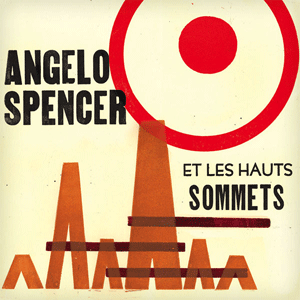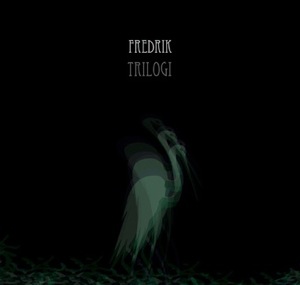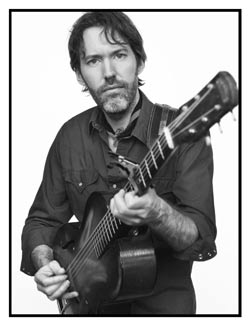
Angelo Spencer et Les Hauts Sommets
s/t
K Records
What do you get when you cross Miles Davis, Clint Eastwood’s American West, and the festering wildness of Lord of the Flies? Answer: Angelo Spencer et Les Haut Sommets (translation: the high summits). Spencer, in fact, grew up in the French Alps watching spaghetti westerns—he now lives in Olympia, Washington, the rainy hometown of Olympia beer and K Records.
Out this week, his debut will probably be deemed indie, experimental, and alt-rock. But more than anything it is a cinematic, instrumental trip through the deepest jungle—full of cerebral harbingers of something along the lines of Joseph Conrad’s Mr. Kurtz. While the 10-track album doesn’t impart sadness, it delivers a dark tale without benefit of human voices. Les Hauts Sommets’ music presupposes imagery, and what follows are some of the images I took away from the album, although I’m sure there are many others.
“Now!” the opening track, announces the band’s intricate collection of instruments—guitars, drums, tambourine, bells, shakers, keys, and clarinet—like forest animals emerging from hiding. “Northwest,” rustles you awake inside of a dream; as the scene comes into focus you notice that you are among others, a procession of wanderers, moving at night to the beat of a bass drum. Spencer’s twangy guitar comes in and out, allowing room for the other instruments to speak, like conversational jazz.
The third track is an upbeat jaunt to break up its eerier counterparts, while track four, “Did You Hear the Sound of…” is exactly what it sounds like. Above an echoey dirge of bass drum, bells, and guitar, the clarinet unleashes a tortured siren of a bird. You can picture every human turning suddenly in its direction, wondering what sort of creature, obscured by darkness, has entered their presence. The music’s starkness reminds me of Neil Young’s score for the 1995 postmodern western Dead Man, which opens in a mid-19th-century mining camp and journeys bleary-eyed through the backcountry from the Southwest to the Northwest.
Track five is my least favorite, but it makes sense within the larger narrative. It’s the chase scene—surf rock on speed, and a cross between Mad Max and a tribal hunt. Six and seven are short, Leo-Kottke-esque interludes. One of my favorites, “La Pinaille” comes next, bursting with a second wind. That’s when you know you’re listening to a really, really good album. Eight songs in, and they’re still surprising; there’s still more to the story. Spencer’s energetic guitar licks, moored by the bass drum, are interspersed with quick handclaps.
Track nine, “Le Mont Pourri,” concludes with the sound of spinning vinyl grinding to a halt, as if the story were being sucked back into its crystal ball. And the final track feels like an encore. It may be the most lighthearted song on the album: full-bodied and loud, but dropping off at times to allow Spencer’s guitar to pop into the foreground. It also manages to pull everything together, leaving you back where you started, and wondering if it were all a dream.
So I would recommend this record to anyone, regardless of musical taste. And I’m curious to see the sort of critical reaction it gets. Because personally, I can’t stop listening to it.













